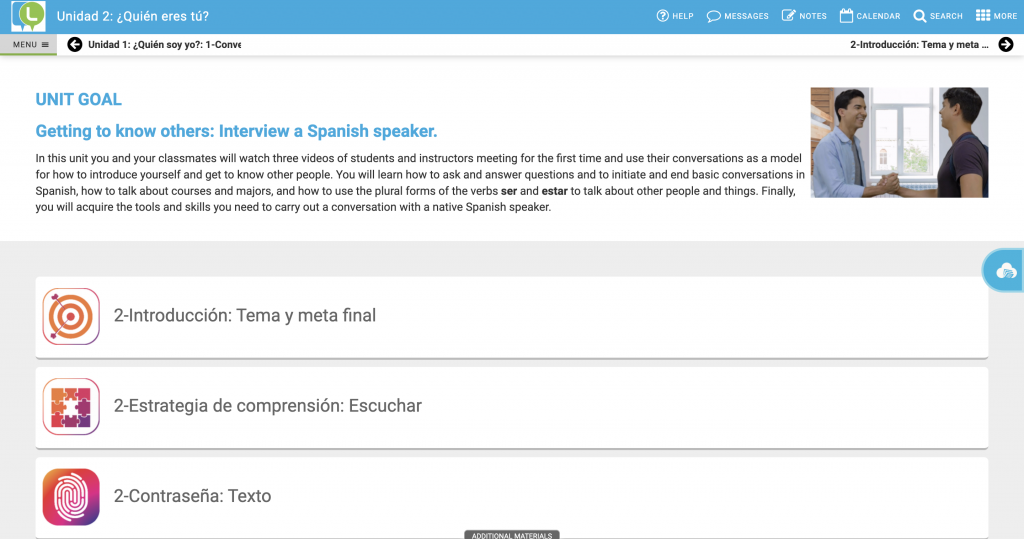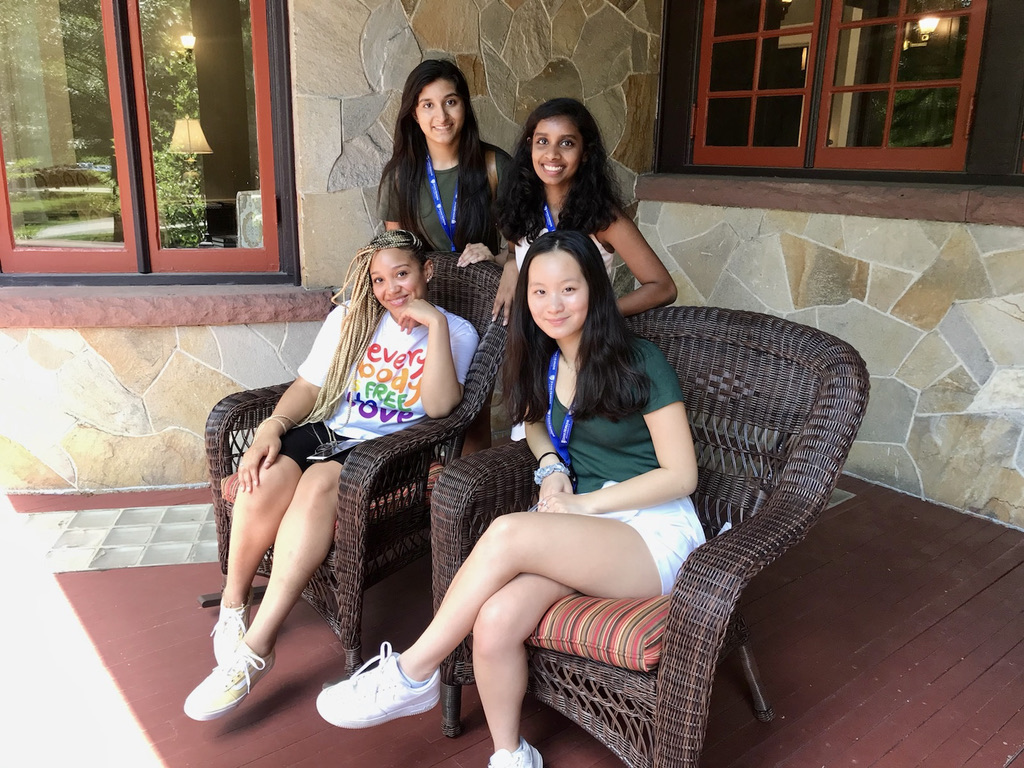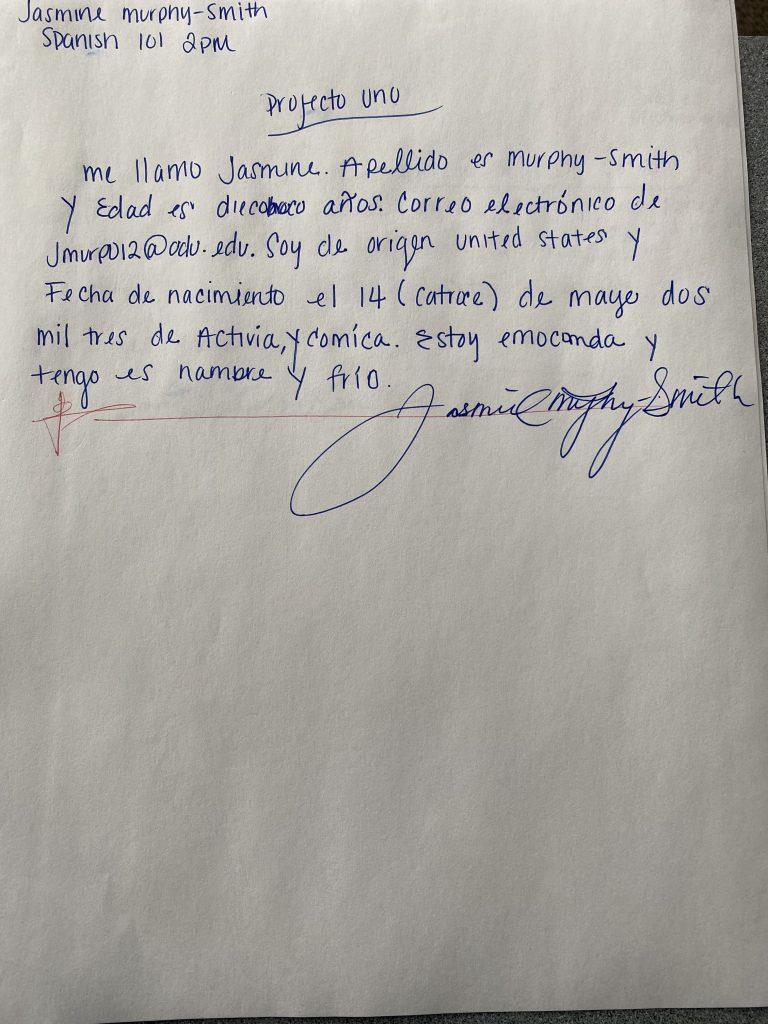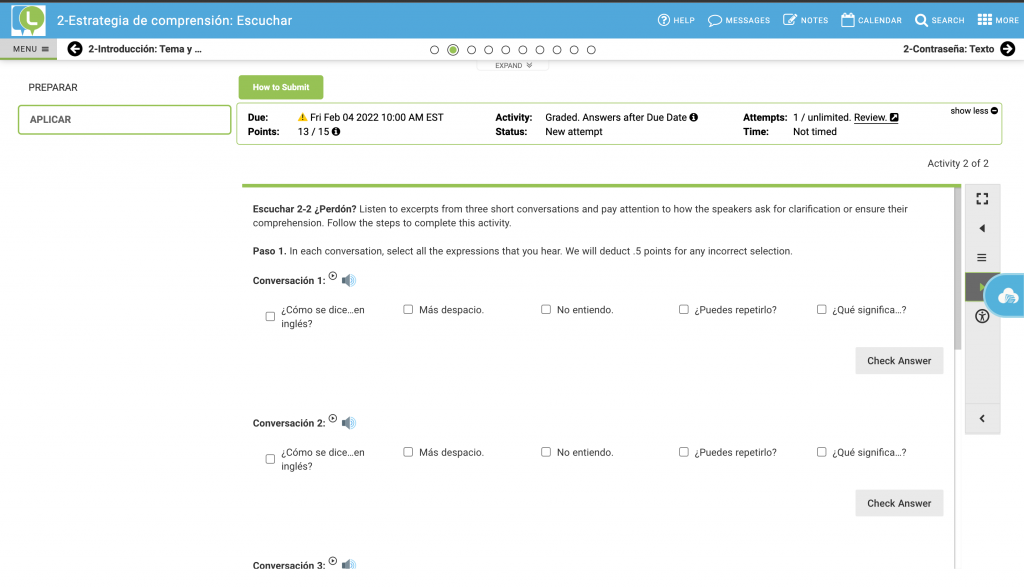Reflection:
It was a pleasure and a fantastic opportunity to participate in a Spanish language course during the spring semester. English being my first language, I was hesitant to explore another language because of the lack of information I had, and I didn’t want to try to catch on to a language too late. At starting, my Spanish was weak, and I didn’t quite grasp it. It was a pleasure and a fantastic opportunity to participate in a Spanish language course during the spring semester. English being my first language, I was hesitant to explore another language because of the lack of information I had, and I didn’t want to try to catch on to a language too late. At starting, my Spanish was weak, and I didn’t quite grasp the concept. This course proved to be of great assistance in helping me overcome my doubts and worries about another language. One assignment that helped me gain the utmost confidence was making a video about my campus life and what I love about it. In the footage, Im exploring different areas, and I feel fit comfortably. As each assignment progressed, I could feel myself evolve as a Spanish-speaking individual. Every task focused on polishing a particular skill set. From what I’ve learned, the next challenge will be better. However, Spanish will impact my future by opening a new path of something new for myself in my future.
Instructions
Exploring Culture

Actively trying to understand and embrace cultural differences can open you to a whole world of experiences. However, one practice I have felt has helped me understand the cultural perspectives of Spanish is ¿Quién eres tú? Assignment in unit two. In this particular assignment, you are doing a short interview with other classmates about yourself. I never thought I’ll be able to grow and love another culture as I love my own. I enjoyed growing and learning from this assignment.
The assignment above displayed cultural differences by hearing other students talk more about their culture. For example, talking to a Hispanic classmate about herself and her culture and hearing someone from a Spanish culture gave me a sense of diversity. I love broadening my horizon about other cultures. This assignment has taught me to listen more than talk. Listening to those who are different from you shows how much life there is in America.
Engaging in Communities
Being part of an engaging community gives us a sense of belonging in society. It enables us to share personal relatedness and show the support for the perpetual growth of one another other, ourselves, and our environment. A sense of congregation embraces spirit, character, image, and pride and is a vital element of becoming a good human. It is a good feeling that people within the community matter to one another with a shared faith that needs will be met through dedication and togetherness. Being a part of a community can make us feel like we are a part of something greater than ourselves. There are benefits when engaging in community work, such as influence, support, or even connections. Being supported by other people can help with self-confidence because you have others helping you become a better individual. Being supportive of others will allow them to feel good and better about themselves. With so much stress in this busy world, there’s never been a more critical time to assist others struggling with their mental and physical wellbeing. Yet, not only does being in a community full-fill life aspects, but theres diversity within the environment you chose.

I’ve participated in several community based organizations that has offered various opportunities for me to improve my characteristics. Minds Matter has helped shaped the person I am today. Minds Matter is a program for students who wants to achieve a higher self confidence. In one particular activity, you had to pass out flyers to strangers to persuade them into joining the program. This has taught me how to talk with someone with a tone of greatness.
Interpersonal Communication
One assignment, that I’ve completed was Unit 4-Contraseña: Proyecto. You had to create a two-minute video describing at least three favorite places on campus and/or where you live and study. You may film it yourself or have a friend help you record. Eventually, you put together a series of clips in different places where you love.
In English, give a very brief 3-4-line description of TalkAbroad and other interpersonal oral/audio activities, discussion board and other interpersonal writing/reading activities you completed this semester inside or outside of class for or related to your Spanish learning. (See Modes of Communication link for definition and examples).
Then, in a short paragraph or two, write a reflection that includes each type of the interpersonal (spontaneous, unplanned) communication activities: telecollaborative (TalkAbroad) conversations, discussion board posts, and any other interpersonal exchange. Explain how you’ve grown with each assignment/activity. What was difficult and how did you overcome that difficulty? What did you excel at and why/how? What/how did you learn from it and would you do differently next time?
Presentational Writing:
In the first stage of unit one, students had to write a paragraph introduce yourself to your classmates. Basic information about yourself: nombre (name), apellido (last name), edad (age), correo electrónico (email), teléfono(Telephone), origen (origin) y fecha de nacimiento (Date of Birth.)

The LingroFolio assignment helped me understand the basics of Spanish writing. For this assignment, it was an in-class task writing. This assignment helped me gain information on how you should start before getting into something more complex. However, beforehand, there were other assignments you had to complete as a guide to building your skills, such as a starter sample of what you need to have. Each example provided a gender profile of what it should look like. But trying to learn the process estar and ser became more and more difficult for me because I couldn’t grasp it right away. However, I went on youtube to get more of an in-depth meaning of both. My changes in understanding the difference in verbs helped me with my writing assignment.

Interpretive Listening:
During the second stage of the course, You’ll have to listen to the short conversations. Then students would have to listen to the audio with expressions and select as many checks as your answer.

During this assignment, challenged me into thinking about each expression is different as I listen to each audio I had to select the best answer.
In this listening assignment wasn’t hard, I found it refreshing to hear a Spanish speaking person talk fluently. I can understand better when there are other talking.
Interpretive Reading:
Some activities that we did in the classroom that helped us to read better in spanish was researching in spanish, reading emails and letters in spanish. Each assignment that had us reading became complex each unit.
The take away I find from these assignment were never give up because you are able to finish if you believe regardless of how hard it can be. The assignments throughout helped me know there are other languages that will help me in the future.